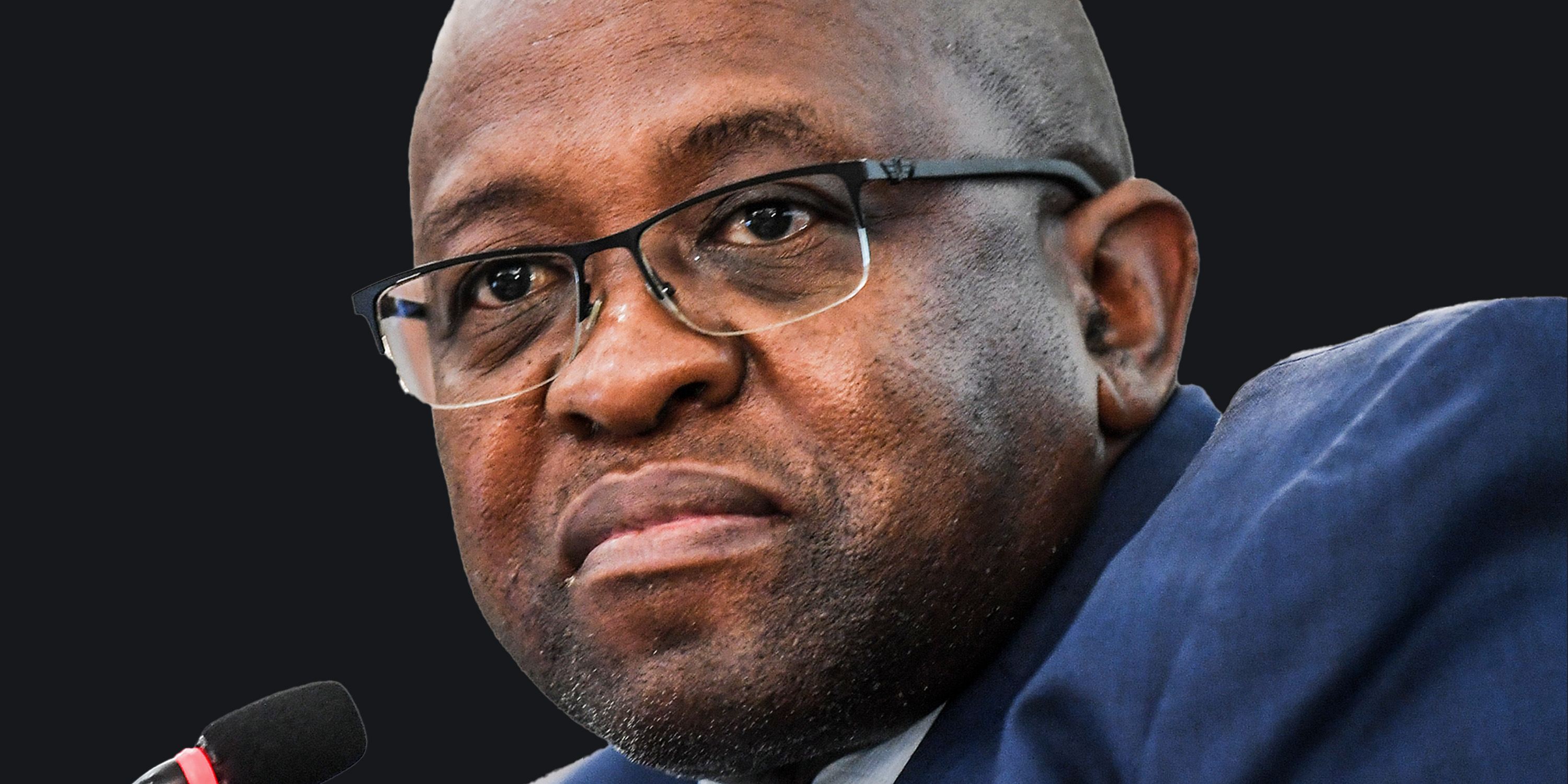The Madlanga Commission of Inquiry will probe and report on the “veracity, scope and extent” of the allegations made by KwaZulu-Natal police commissioner, Lieutenant General Nhlanhla Mkhwanazi, about political interference in crime fighting and the infiltration of criminal syndicates in law enforcement.
According to its terms of reference, published on Wednesday, 23 July: “The Commission is appointed to investigate and report on the veracity, scope and extent of the allegations with regard to the infiltration of law enforcement, intelligence and associated institutions within the criminal justice system by criminal syndicates and make findings and recommendations for criminal prosecutions, disciplinary actions and institutional reform.”
Read more: The faulty rationale behind the Madlanga Commission of Inquiry
The commission will have “all the powers necessary” to summon witnesses and compel the production of documents, and to conduct search-and-seizure operations, subject to applicable law.
It will also have the power to deviate from the Commissions Act of 1947, to allow it to potentially hold some of its sessions behind closed doors in order “to protect the safety of witnesses, the integrity of ongoing investigations where appropriate and where intelligence and the work of intelligence services are concerned”.
In addition, the commission will have the “power to refer matters for immediate criminal investigation and urgent decisions on prosecution, taking into account the nature of the allegations and evidence the Commission will uncover”.
President Cyril Ramaphosa announced the appointment of the commission of inquiry on 13 July.
His announcement came a week after Mkhwanazi made the explosive accusations about fellow police officers and other state officials. He claimed that a drug cartel in Gauteng was controlling a high-level criminal syndicate that extended into the South African Police Service (SAPS), the Police Ministry, Parliament, official prison structures, the judiciary and other law-enforcing authorities.
He also alleged that Police Minister Senzo Mchunu, along with several other figures, including the deputy national commissioner for crime detection, Lieutenant General Shadrack Sibiya, had undermined investigations into political killings and organised crime.
Mchunu has been placed on special leave until the commission makes its findings, while Sibiya has been told to “step aside”. Ramaphosa also appointed Professor Firoz Cachalia, the National Anti-Corruption Advisory Council’s chairperson and a former Gauteng community safety MEC, as acting police minister from 1 August.
Read more: The walls of South Africa’s criminal justice system are burning fiercely
The commission will be led by 63-year-old Constitutional Court Justice Mbuyiseli Madlanga. Madlanga is currently serving as the country’s acting chief justice and will retire from the Bench at the end of July. He was an evidence leader at the Marikana Commission in 2012.
Advocate Sesi Baloyi SC and advocate Sandile Khumalo will assist Madlanga as co-commissioners.
The commission is expected to submit an interim report to Ramaphosa within three months of its establishment and a final report within six months of its establishment, “or such extended period as the President may determine”. The final report will also be sent to the National Assembly Speaker and the Chief Justice.
Each report, according to the commission’s terms of reference, should include “recommendations that can be immediately actioned” based on the commission’s work.
“The Commission shall, where appropriate, refer any matter for prosecution, further investigation or the convening of a separate enquiry to the appropriate law enforcement agency, government department or regulator,” read the terms of reference.
‘Effectiveness or failure of oversight mechanisms’
According to its terms of reference, the commission will inquire into, report on and make findings and recommendations on “whether criminal syndicates, including but not limited to drug cartels, have infiltrated or exert undue influence over” eight specific institutions including:
- The SAPS, including the Political Killings Task Team and the Crime Intelligence unit;
- The Johannesburg Metropolitan Police Department;
- The Ekurhuleni Metropolitan Police Department;
- The Tshwane Metropolitan Police Department;
- The National Prosecuting Authority;
- The State Security Agency;
- Any member of the judiciary, including the magistracy and courts administration;
- The Department of Correctional Services; and
- Any other institutions or organs of state within the criminal justice system.
The commission will also investigate the “nature, extent and consequences of such infiltration and influence”, as well as the role of senior officials in these institutions who may have “aided or abetted the alleged criminal activity; failed to act on credible intelligence or internal warnings; and/or benefited financially or politically from the syndicate’s operations”.
“Once established, the Commission shall also consider prima facie evidence relating to the involvement of individuals currently employed within law enforcement or intelligence agencies and, where appropriate, the Commission must make recommendations regarding the employment status of such officials including whether they should be suspended pending the outcome of further investigations,” read the terms of reference.
In addition to making recommendations concerning the employment status of implicated individuals, the commission must also evaluate the “effectiveness or failure of oversight mechanisms” and the adequacy of legislation and policies in preventing criminal infiltration.
The Justice Department declined to comment, at this stage, on when the commission is expected to begin its work, saying it will appoint a spokesperson soon.
‘Make or break’
The terms of reference determine the scope of an inquiry and are decided on (and can be manipulated by) the President, who can also, at any time, amend the terms of reference.
“The terms of reference are make or break. How broad or how narrow they are really determine how the commission will function,” said Mbekezeli Benjamin, research and advocacy officer at Judges Matter.
“The identity of the commissioner obviously also matters, because they set the tone and determine the pace and scope of the commission and have to interpret those terms of reference – so that matters a great deal.”
Benjamin said the powers of the commission appear “quite broad”.
“They have the normal commission powers to summon witnesses; to compel the production of documents. But they may also do search-and-seizure operations, they can deviate from the Commission’s Act, I think because of the sensitivity of what they’re investigating,” he said.
Benjamin added that the timeframe of six months to produce a final report is a tight window to investigate about eight specific institutions, as well as any other institutions within the criminal justice system which may be found to be infiltrated.
Ad hoc committee
On Wednesday, the National Assembly agreed to establish an ad hoc committee to probe Mkhwanazi’s allegations, after a joint meeting of Parliament’s police committee and its justice and constitutional development committee had submitted a report recommending its creation.
Read more: MPs recommend that ad hoc committee probes Mkhwanazi’s allegations within 90 days
This process will run concurrently with the judicial commission of inquiry.
The committees proposed that the ad hoc committee process be concluded within 90 days of its formation. DM





 Justice Mbuyiseli Madlanga. (Photo: Gallo Images / Daily Maverick/Felix Dlangamandla)
Justice Mbuyiseli Madlanga. (Photo: Gallo Images / Daily Maverick/Felix Dlangamandla)